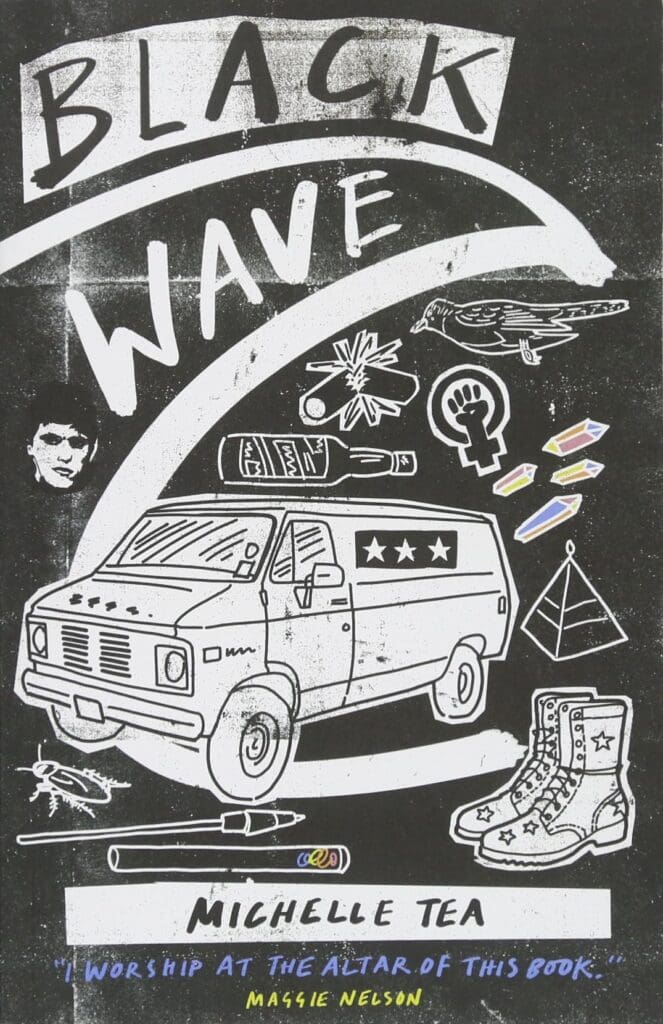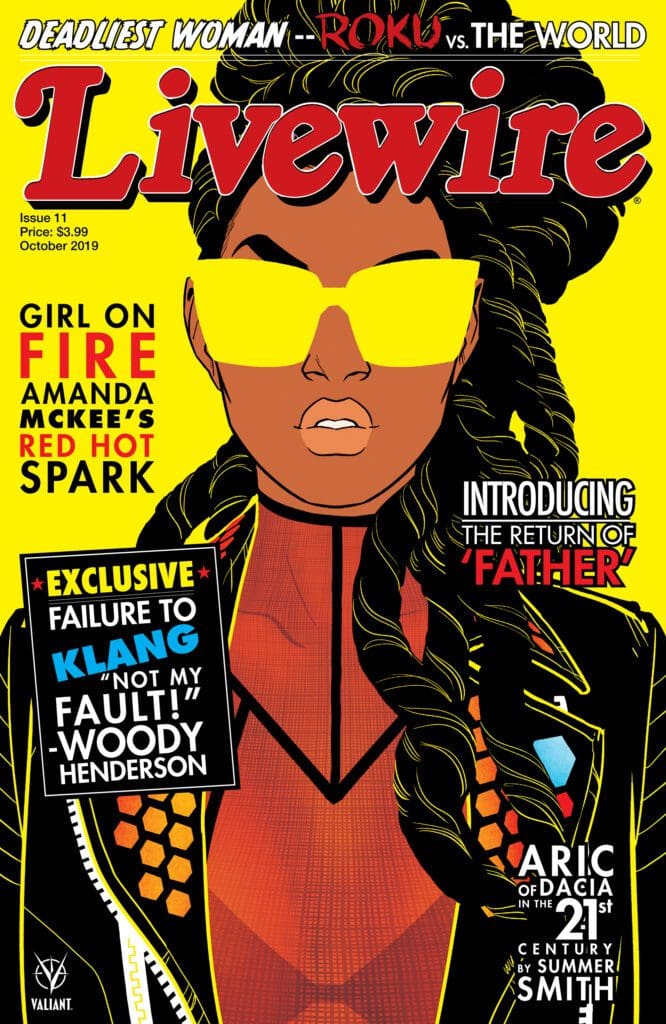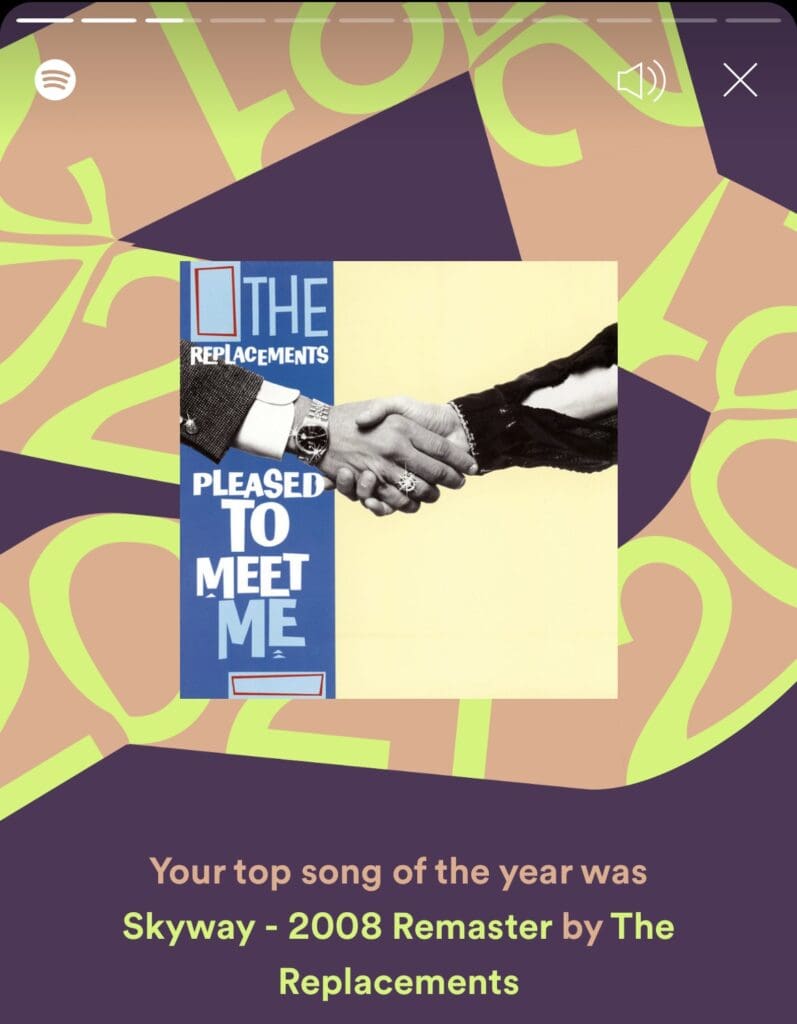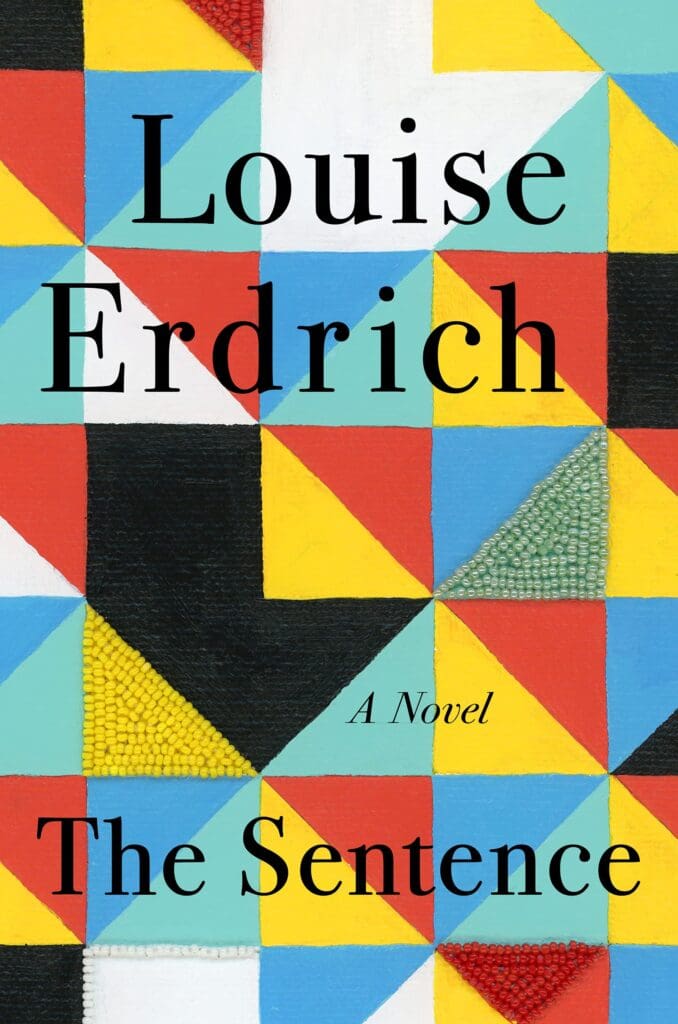Shelby Hinte, Intern: Favorite Book Read in 2021 That Was Published in 2021—Her Lesser Work by Elizabeth Ellen (Short Flight/Long Drive)
Was it just me or was 2021 a crazy good year for books? No need to name names (as they have already been named enough), but more than one major literary icon published a new novel this year. While many big names were taking up shelf space at the bookstores, I found my favorite book of 2021 in the indie corner: Elizabeth Ellen’s short story collection Her Lesser Work.
The twenty stories in this collection are about art, aging, ambition, good sex, not-so-good sex, cancel culture, and aesthetics. In a world where so much of our lives exist in public and we have the capacity to curate our identities into content, Elizabeth Ellen casts a light on the parts most of us would rather keep private. The stories astutely capture the less “Instagrammable” moments of the human experience—shameless obsessions, mortifying bodily functions, vanity in the face of aging in public, and unmet ambitions. Reading them, I couldn’t help but feel vicariously exposed. While reading Her Lesser Work, I had the strange impulse to check if anyone was near me for fear they might peer over my shoulder and see what I was reading (This might also have something to do with the explicit cover, which features the author in a bathroom selfie she snapped for her boyfriend that depicts her from the neck down wearing a crotchless bodysuit with both breasts fully exposed.).
Seeing the cover, it is no surprise that sex and power are primary focuses throughout the stories in Her Lesser Work, but what is unique to the collection is how Elizabeth Ellen subverts traditional narratives of gender roles within these dynamics—in many of the stories about sexual transgressions between men and women, the female character is almost always the one in a position of power (at least overtly). The sexual transgressions themselves are not unfamiliar narratives, but by reimaging with subverted gender roles, Her Lesser Work adds a new perspective to the discourse of gender, agency, and control.
There is much to celebrate in this collection, but what I admire most about Her Lesser Work is its resistance towards binaries. There are plenty of unlikeable characters doing outrageous things in these pages, but Elizabeth Ellen never defines anyone or anything as either good or bad. She leaves that up to the reader. Her Lesser Work is a refreshing (and necessary) collection that’s more concerned with asking difficult questions than promoting popular agendas.
Favorite Book Read in 2021 That Wasn’t Published in 2021—Black Wave by Michelle Tea (Feminist Press)
At the start, Michelle Tea’s novel, Black Wave, introduces itself as a tale of autofiction about a queer writer living in a rapidly changing San Francisco and trying to find herself as a person and artist. She works at a bookstore, drinks at local dive bars, is friends with all the most interesting people, and agonizes over whether she will ever write a second book—“Couldn’t a book just be about life? Me, My Alcoholism, I Think. The Nineties. Being Poor. The Feeling Of It All.” In the end, Black Wave is all the things its protagonist wants her own book to be, but like any great experimental novel, it is also so much more and therefore not entirely easy to categorize. Black Wave is part queer dystopian romp, part grungy Künstlerroman, and part metafictional “quit lit” novel.
If a book can be a vibe, then Black Wave is 90s San Francisco and Los Angeles as seen from the people living in the fringe of society. It is about queerness, gender, addiction, art, and identity-making. While the book covers some serious ground, it is also a hilarious satire about art in the age of capitalism. Michelle (the protagonist) is an ambitious slacker, and in her efforts to find love and success, she also struggles with substance abuse. The paradox of Michelle’s artistic ambition and her impulse to self-destruct feels deeply relatable. It also presents the uncomfortable question of how one can defend self-interest in a dying world.
It is hard to say what I loved most about Black Wave because it really had everything I look for in a book, but what I think was most meaningful to me was the way Michelle Tea writes about addiction with such humanity. In true metafictional fashion, the protagonist grapples with the many ways that exist to tell a story about addiction—“People seemed to enjoy stories in which someone who Has It All Almost Throws It All Away, but doesn’t. Redemption.” There is a distinct difference between authentic accounts of addiction and commercially viable books about addiction. Too often literature reduces addicts down to caricatures that are easily defined in relation to how they propel a plot or idea forward, but Tea never simplifies addiction to make it more palatable for the masses, and the result is a much-needed portrait of an addict who is, like everyone else, just a human trying to find a way to live in an unlivable world.
Chiara Bercu, Intern: Miho Hatori’s Between Isekai and Slice of Life is one of my favorite albums from this past year, and you might like it if you enjoy tinny production, digicore, or music that sounds, as I once saw Hatori’s described, like “inexhaustible sonic stew.” Hatori is best known as the vocalist for the famed avant-pop duo Cibo Matto, which she co-founded with instrumentalist and fellow Japanese ex-pat Yuka Honda in 1994, and she was an early contributor to Gorillaz, too (the voice for “Noodle,” if you’re familiar). Between Isekai and Slice of Life is her first release under her own name in almost fifteen years, following projects under monikers “New Optimism” and “Miss Information,” as well as several releases with a Cibo Matto revival, which came to a final close in 2017. As Hatori explained in an interview with Bandcamp, this most recent project is inspired by the anime Demon Slayer and addressed to collective fears of an AI takeover.
Between Isekai and Slice of Life is the kind of album that will play over and over before I notice I’ve left it on, and it’s still sounding good after what I can only imagine to 100+ listens over the course of the year. Hatori wrote and produced all songs on the project, which layer lo-fi and sometimes grimy synth beats with a piercing vocal track (her talents there are obvious). It’s hard to pick apart the instrumentation—Hatori plays tambourine, bass, melodica, acoustic guitar, marxolin, and harmonica—but the general effect is something like a plodding hyperpop, danceable but leaden with minor harmonies (apropos of January 2021). “The whole universe is sinking,” Hatori repeats in “Formula X.” The music video for “Tokyo Story” follows Hatori as she removes three pounds of masks from her face one by one, picturing hope for a post-pandemic future. She thanks fans directly in the YouTube comments.
Supriya Saxena, Intern: Favorite Graphic Novel of 2021—“Livewire” by Vita Ayala and Raúl Allén. I’m not very familiar with Valiant’s superhero universe, but fortunately, you don’t have to be in order to enjoy Livewire: Fugitive. Written by Vita Ayala, drawn and colored by Raúl Allén, Patricia Martín, and Scott Koblish, and lettered by Saida Temofonte, this graphic novel collects the first four issues of the Livewire comic book series, which is written to be accessible to new readers. Amanda McKee, also known as Livewire, is a super-powered psiot with the ability to harness and manipulate technology. When the government began targeting psiots, Livewire retaliated with her powers in order to defend herself and her fellow psiots, but in doing so endangered many innocent people worldwide and was responsible for several deaths. Now Livewire is a fugitive, on the run from the government and unable to rely on her former allies who can’t forgive her for what she did.
The graphic novel grapples with Livewire’s heroism, examining how someone with so much compassion for others could be driven to cause such destruction and loss of life, and how she may or may not be able to redeem herself in the eyes of her friends and of herself. Though the story includes plenty of exciting action sequences, showcasing the versatility of Livewire’s powers in a visually stunning way, the writing is deeply rooted in Amanda’s character. Over the course of the story, Amanda comes to truly understand the impact of what she did. Her motivations may have been noble, but she still hurt a lot of innocent people. Amanda owns up to this fact and vows to do whatever she can to atone for her mistakes. Ayala succeeds in writing Livewire as a flawed hero, someone who comes off as very sympathetic even though she has committed terrible crimes.
The art in this graphic novel is clean and expressive, with plenty of detail. When Livewire is using her powers in self-defense, the art communicates just how formidable an opponent she is. Yet, the art also depicts Livewire with empathy and grace, showing her humanity and vulnerability. Amanda is written as a multifaceted character, and the art portrays this perfectly. The colors do an excellent job of bringing clarity to the story and evoking mood. They’re also just gorgeous to look at. For such a grim, political story, I had expected the colors to be bleak or garish. In actuality, the colors are on the calmer, more muted side, though the color artist also uses bright colors to infuse the pages with energy in more tense or dramatic scenes. The art and colors expertly relate Ayala’s powerful, moving story.
Zack Ravas, Editorial Assistant: Despite the ongoing pandemic, 2021 offered up a myriad of literary pleasures, including Joy Williams’ well-timed contribution to the post-apocalyptic genre (Harrow), as well as San Francisco Chronicle film critic Mick Lasalle’s lovely overview of California-in-the-movies (Dream State), among many others; but, weeks later, the music geek in me is still dying to talk about my Spotify Wrapped playlist. Granted, I feel a pang of guilt whenever writing about Spotify since it’s such a valuable, reasonably priced service…that still refuses to pay artists a reasonable rate for their work. Listeners like myself get so much enjoyment out of Spotify on a monthly basis that we would happily pay a higher subscription fee if it meant that our favorite indie musicians were earning more for their art. For one thing, Spotify Wrapped—a personalized playlist that collects users’ most-played tracks at the end of each year—has proven to be a telling snapshot of my listening habits over the years. With that in mind, I thought I’d reflect back on some of my ‘most listened’ songs of the year.
“Drinker’s Peace” by Guided by Voices: Indie rock lifers Guided by Voices ended up being my most listened band of the year; the irony, considering that I spent much of 2021 exploring their massive back catalog of albums, EPs, and singles, is that my favorite track from the band continues to be one of the very first I heard. That would be “Drinker’s Peace” from their 1990 effort Same Place the Fly Got Smashed. It’s difficult to explain why a song that opens with the line “At times I wish I were dead” could feel strangely life-affirming, but this might speak to the ironic nature of Robert Pollard’s songwriting career—the man has written as many pop gems as anyone since The Beatles and yet mainstream success has perpetually eluded GBV (one senses the band made peace with this fact decades ago). I will point the curious towards this live, beer-soaked rendition, which effectively captures the yearning melody of the song as well as the tension in the lyrics, wonderfully summed up as Pollard declares, of love or drink or both, “Life was too real till you got there.”
“Wish Fulfillment” by Sonic Youth: Here’s how I know I’m not a true Sonic Youth fan: my favorite album of theirs is the one that’s least regarded by their core audience, 1993’s Dirty. The record, released at the height of the grunge scene, is considered their most commercial effort, the one that saw them working with Nevermind producer Butch Vig and mixer Andy Wallace. But I remain convinced that “Wish Fulfillment,” sung by the band’s oft-overshadowed guitar player Lee Ranaldo, is their best song. I typically find Sonic Youth’s music to be many things—interesting, adventurous, noisy (in the best sense of the word)—but “Wish Fulfillment” is probably the only track from the band that I’ve found to be emotionally affecting. “Your life and my life, they don’t touch at all,” Renaldo sings, “and that’s no way to be.” It’s one of the songs I returned to the most throughout the year, as much for this emotionality as its blistering three-guitar squall during the loud chorus.
“No Hard Feelings” by Wolf Alice: Here’s one of my favorite tracks released this year. English alternative rock band Wolf Alice have written one of the best ‘breakup songs’ of all time…no small feat, considering how many contributions there have been in the pop music catalog. Befitting this strange and disconcerting year, “No Hard Feelings” is—true to its name—notable for its dispassion and neutrality, recounting the new status quo following the end of a relationship in a meditative way that nevertheless conveys the rivers of feeling running beneath singer Ellie Roswell’s words. “There’ll be no bad blood,” she sings in one of the most hushed and lovely vocal performances of the year, “Losing your love has been hard enough.”
“Skyway” by The Replacements: The Replacements made their name and earned a small but devoted fanbase with their catalog of beer-soaked indie rock anthems like “Bastards of Young” and “Can’t Hardly Wait.” Yet I don’t think the band was ever better than when they unplugged or slowed the tempo way down, as on “Skyway” from 1987’s Pleased to Meet Me, my most played track of 2021. The song functions as both a loving ode to Minneapolis’ skyway system while also deploying it as an effective metaphor, the lyrics examining two people who seem destined to cross paths—one above the city streets, one below—but never connect: “There wasn’t a damn thing I could do or say/Up in the skyway.” The song’s gorgeous vocal melody and frontman Paul Westerberg’s understated delivery combine to generate the right tone of wistful melancholy. It’s one of those rare songs I find myself immediately pressing ‘play’ on again as soon as it ends.
Laura Cogan, Editor: Reviewing the stack of books I’ve read this year, my immediate impression was that there was a high degree of randomness and certainly no overarching theme. But as I sifted through the titles, selecting those I’d say were among my favorites a general kind of pattern did emerge: nonconformist, challenging female voices. It would be a stretch to say the titles have more in common than that—and appearing together in some kind of constellation in my life doubtless says more about me than it does about the intentions of their authors. Yet if reflecting on the books we’ve read—and particularly the books we were most affected by—is an interesting way to take the measure of the year as we experienced it, I’d say it’s meaningful that the following titles haunt me the most: Everyone Knows Your Mother Is a Witch by Rivka Galchen; The Sentence by Louise Erdrich; and Ethel Rosenberg: An American Tragedy by Anne Sebba.
Each of these books (two novels and one biography) are strikingly timely in their own ways, although Sebba’s biography of Ethel Rosenberg could more precisely be called long overdue. Sebba’s thorough research finally gives us a more detailed and fully contextualized portrait of Ethel Rosenberg than we’ve ever had before. Ethel emerges as a passionate, driven, and principled person who was betrayed by her family and by the justice system; moreover, Sebba shows how overlapping biases of antisemitism and misogyny fueled her prosecution in both the media and in court.
Galchen’s fictionalized account of another true story also features a smart, unusual woman persecuted by a corrupt court and hysterical public: in 1618, amid plague and war, Katharina Kepler is accused of witchcraft. Galchen creates a novel that is both absurd and terrifying courtroom drama, and a poignant first person account of isolation, fear, and the toll a years-long ordeal takes on a human psyche. The parallels between both of these books and the anxieties of 2021 suggest themselves readily enough.
I wondered as I began reading Louise Erdrich’s latest novel, though, whether it was asking too much for a work of literature published this year to have found a way to represent 2020 on the page in a way that felt fully reckoned with. The Sentence is set in Minneapolis in 2019-2020, and follows the protagonist, Tookie, as she experiences the onset of the pandemic, the murder of George Floyd, the uprising that followed, and the 2020 election. Impressively, Erdrich has crafted a tender and darkly humorous novel that follows her characters not only through the turbulence of these events, but also through a haunting that is beautifully layered and interwoven with all the other threads. The Sentence has so much to offer readers, and I think for those who love bookstores, and who turned to local independent bookstores for community, solace, and information over the past two years, it may be an especially affecting book.





